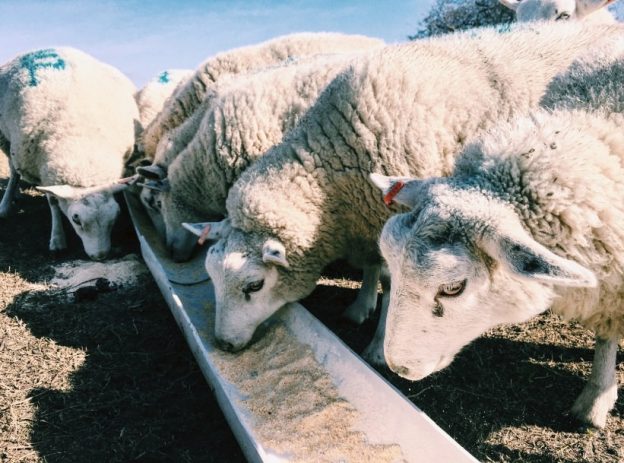Sheep farmers should be ready for their seasonal worming duties. With resistance increasing however, it’s vital to introduce a group 4 (orange) wormer into the worm control strategy. This will help prevent resistance from accumulating. If you are uncertain where to start, we can help. Let us offer you some helpful advice on how to prep for group 4 worming.
The trouble with resistance
To begin with, you need to know that resistance is becoming an increasingly huge problem on UK sheep farms. Published data indicated that 94% of farms have developed resistance to white wormers and 68% to yellow wormers. As for ivermectin, the rate is 51%, with it being 19% for moxidectin.
You need to monitor the growth rates of your sheep. Routinely test your flock for resistance problems. You shouldn’t wait until a problem appears to begin using a new wormer though. The ideal approach is to use a group 4 product at two points in the season.
Furthermore, when utilising any treatment, farmers should avoid worming sheep and immediately moving them into clean pastures. After a quarantine dose, sheep need housing or yarding for 24 hours. Only after can you move them to pastures. With break doses, keep lambs on dirty pastures for three or four days following treatment. Such practices should aid you in lowering the impact of surviving worms.
Some wormers won’t work against some worms
One of the most important things to remember here is that not all wormers work well against all types of worms. Skipping a group 4 dose can result in higher wormer resistance. Your flock won’t be able to fight off parasites. By introducing group 4 worming into your management strategy, you can keep your sheep productive and healthy. You’ll be able to carry on running a sustainable operation for years.
Myths
There are few myths surrounding sheep worming that you should know about too. Firstly, one people tend to believe is that they don’t have resistant worms on their farm. Many farmers make the mistake of believing it. Studies actually indicate that if they were to look for them, they’d spot worms resistant to one or multiple wormers on 98% of farms. There will even be worms resistant to two or more products on 77% of farms. You must know about this hidden issue and then take the right measures for proper treatment.
Another myth is that wormers are working as well as they always have done. A survey indicates that 86% of farmers believe they were still working properly. They base the conclusion on the condition and look of their animals. Although, even without any visible signs of problems, a worm burden could lower lamb performance by as much as half. Monitoring and dealing with this invisible issue early is necessary to prevent it from becoming a massive concern. Stay vigilant and act quickly if you need to use a wormer.
The third myth is that farmers need to save the newer wormers to use if the cheaper, older ones fail. Employing products with the same active ingredient too much can result in worms developing resistance. Depending entirely on newer merchandise will lead to their failure at some point from overuse too. By introducing newer products to your worm control strategy, it’s possible to extend the effectiveness of older groups. You can also maintain efficient worm control without over reliance on particular products.
Lastly, people think newer wormers are costly and can’t afford them. The fact is that you can’t afford not to invest in them.
Supplying wormer
At JS Hubbuck Ltd, we have plenty of experience supplying everyone with top tier worming goods. You can rely on us whenever you find yourself short on them or other crucial products like animal feed or fertiliser.
So, if we can help you in any way, please don’t hesitate to talk to us.

